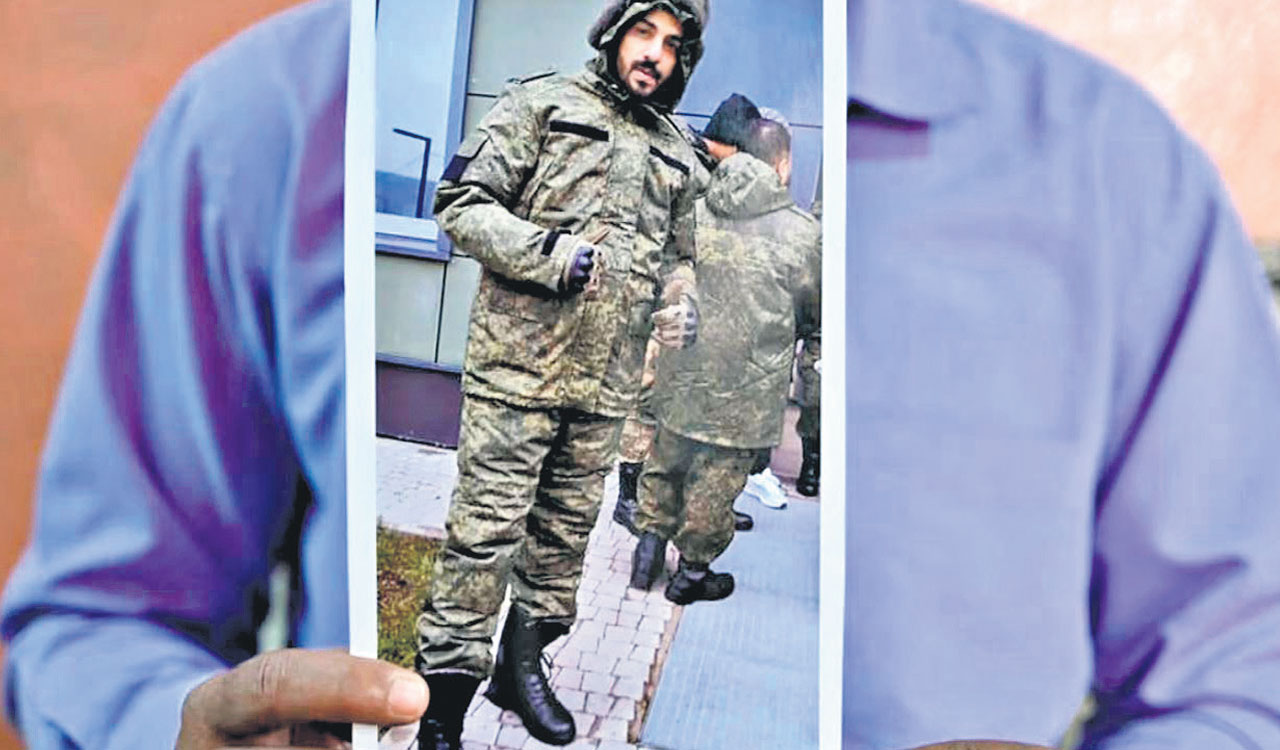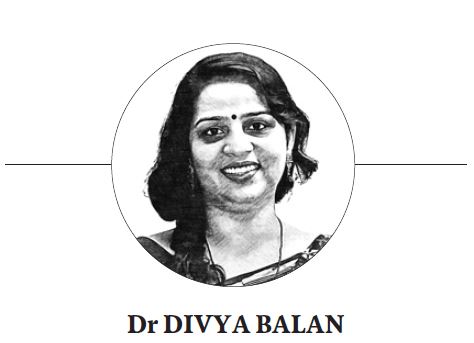The Centre must strengthen bonafide channels to curb organised criminal networks engaging in migrant smuggling and trafficking
Published Date – 11 March 2024, 11:59 PM

By Dr Divya Balan
The recent death of two Indian men in the ongoing Russia-Ukraine war while serving with the Russian Army has once again sparked the debate on stamping out illegal and fake recruitment agencies in India. The 23-year-old Hemil Ashvinbhai Mangukiya from Surat district of Gujarat had travelled to Moscow from Chennai in December 2023 after being offered an assistant job in the Russian Army that he had applied for through an online advertisement. As against the job contract, he was taken to the war front and reported to have been killed in a Ukraine airstrike in the embattled Donetsk region of the Russia-Ukraine border on February 21.
Likewise, 30-year-old Mohammad Afsan from Telangana, a commerce graduate who worked as a textile salesman, left Hyderabad for Moscow in November 2023, hoping he could secure a better earning and a good life. He was offered an army helper job with the promise of a high salary, special government ID and permanent residency in Russia by a recruitment agency operating in Dubai and India. He apparently paid Rs 3 lakh as the recruitment fee. His passport was snatched on reaching Russia, and he was forced to undergo combat training before being deployed on the front lines of the war. His family was notified of his death last week.
Job Crisis
Increasingly, more media reports are emerging that many have fallen prey to this kind of job scam, tricked into fighting for the Russian Army, and got severely injured and trapped in the Russia-Ukraine war zone. Despite India’s rapid economic growth, a vast majority of Indians are desperate to secure overseas jobs, even in conflict zones, as the economic momentum is not translating to the required levels of job creation and salary hikes.
The job crisis in India is multidimensional and dissipates the possible benefits of the country’s demographic dividend. The demonetisation of 2016 and the Covid-19 pandemic intensified the situation, further contributing to large-scale working-age unemployment and clustering in unorganised and farm sectors with irregular income. The country needs to find ways to generate employment for its educated youth, surplus agricultural labourers, and other skilled and low-skilled workforce entrants in the formal sectors, such as manufacturing and service. If not, more and more Indians will leave the country responding to the labour shortage in the global economies, including the brutal battlefronts in Ukraine or Israel. It was reported last week that a 31-year-old Indian worker, Patnibin Maxwell from Kerala, died, and seven were injured in Israel.
Lure of Deceptive Agencies
Inadequate economic and social opportunities in India and the increasingly restrictive legal migration pathways across the globe aid and abet the proliferation of fraudulent agents. The handlers contact or are contacted by aspiring migrants to facilitate their travel overseas via regular or irregular means. The fact that there were only 1,754 registered recruiting agents (as of August 2022) in the country to cater to the overwhelming number of intended overseas job-seekers makes the illicit recruiting agency business lucrative. As most of these agencies are concentrated in urban State centres, the potential rural migrants must depend on sub-agents or middlemen who exploit them further. Concurrently, there existed 2,925 illegal agencies operating across States (as per MEA data available on the eMigrate portal as of October 30, 2023), which is a grossly undercounted estimate.
Thriving on the demand from aspiring labour and student migrants to travel abroad by hook or crook, even if it means risking their lives, these agencies bypass all valid emigration procedures and ‘push’ them through to destinations. The modus operandi is to publicise the study and work abroad opportunities via local agents or print and digital media advertisements.
These multi-state human trafficking/smuggling networks dupe them with admissions in dubious private colleges with fee discounts or fake job offers or ‘free’ job visas. On the false pretext and promises of ‘high-paying’ jobs with residency rights, they extort large sums of money as their fees for arranging travel and papers. At the same time, the MEA directive categorically states that the agencies can charge only up to ₹30,000 as their service fee. The contracts signed, if at all, would be in foreign languages, and after that, the migrants are left at the mercy of employers and college authorities. The operations of the agencies often via WhatsApp, Instagram, Facebook and other social media platforms are untraceable and intractable.
The reported surge in Indians illegally migrating to the United States, Canada, Portugal, Italy, Armenia, Kenya and elsewhere ended up in forced labour, mostly in the unorganised blue-collar 3D (dirty, dangerous and demeaning) jobs. Many are coerced to engage in illegal activities, such as fraudulent businesses, scams and other predatory practices. The consequent exclusion of irregularly migrated persons from the official databases makes them susceptible to wage theft, abuse and life-threatening situations. Also, it keeps them away from the protection and assistance mechanisms of the source and destination States.
Moreover, the debt incurred at home for paying the exorbitant and often unauthorised recruitment fee compels them to endure back-breaking hardships and all forms of human and labour rights violations at the destinations. By the time they save enough to clear off the debt bondage, they either get used to the suffering or it will be too late for them to recover from the physical and emotional distress suffered.
Coordinated Solutions
Considering the gravity of the issue, the ‘Surakshit Jaaye, Prashikshit Jaaye’ media campaign or the occasional advisory warnings from the MEA is not enough to ensure safe and legal migration from India. The central government has to strengthen the bonafide channels of migration for work and study while conducting regular searches and stock-taking activities to curb the organised criminal networks engaging in migrant smuggling and trafficking. The possibility of converting the Emigration Check Required (ECR) list of countries into a floating one to include destinations undergoing real-time emergencies, such as war, civil riots, natural calamities and endemics, can also be considered to manage emigration efficiently.
Besides, data discrepancy and critical gaps in the migration governance system need to be addressed on a priority basis, and Indian Missions need to be equipped to handle any emerging crisis. The proposed Draft Emigration Bill 2021 should incorporate stricter provisions to penalise unlicensed agencies and sub-agents. Compliance requirements should also be tightened and regular comprehensive auditing must be undertaken without fail. For this, a dedicated and trained bureaucratic infrastructure has to be developed to work with relevant Centre and State government departments.






